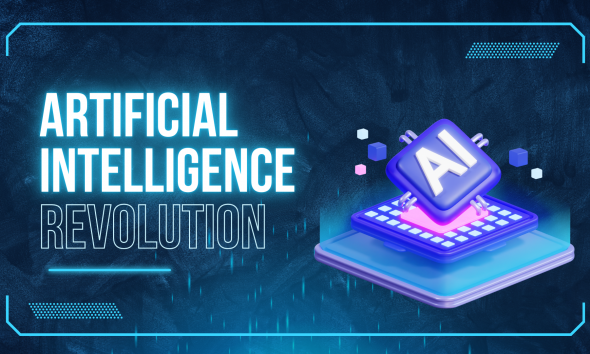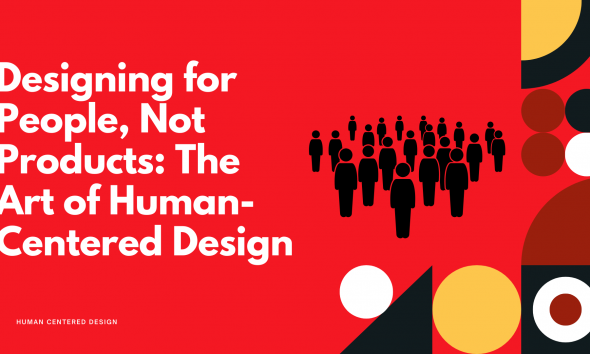This blog post explores the current state of Artificial Intelligence (AI) in Africa, its diverse applications across key sectors, and the unique challenges and opportunities the continent faces in embracing this transformative technology. It highlights the role of design thinking in creating human-centered AI solutions that address local needs and empower Africa's workforce to thrive in an AI-driven future.
The Current State of AI in Africa
Artificial Intelligence (AI) is rapidly emerging as a transformative force across Africa, touching key sectors such as healthcare, agriculture, and finance. As the continent grapples with a range of challenges—ranging from economic disparities to technological limitations—AI is being seen as a tool that can help address many of these pressing issues. In recent years, governments, private sectors, and educational institutions have been increasingly interested in integrating AI into various industries, paving the way for enhanced efficiency, productivity, and even job creation.
AI in Various Sectors
One of the most promising aspects of AI in Africa is its diverse applications across multiple sectors:
1. Healthcare: AI is making strides by enabling better access to medical services, especially in underserved regions. AI-powered tools like telehealth platforms are revolutionizing healthcare delivery

2.Finance: The financial sector in Africa is seeing major shifts driven by AI-powered solutions. With AI, financial institutions can detect fraud more effectively, assess risks, and provide personalized financial planning.
3.Agriculture: Agriculture, a critical sector for many African economies, is being transformed by AI technologies as smart farming solutions, including AI-driven drones and sensors, are helping farmers monitor crop health, optimize irrigation, and improve yields.

AI in Kenya
Kenya stands out as a leading country in Africa when it comes to AI adoption. As a regional technology hub, Kenya has been at the forefront of digital transformation, with a strong focus on using AI to solve local challenges. In healthcare, Kenya's use of AI-driven platforms such as M-Tiba has been instrumental in improving access to medical services, particularly in rural areas. Additionally, in the financial sector, Kenya has seen the rise of AI-powered mobile banking solutions that have enhanced financial inclusion and made it easier for people to access loans, insurance, and other financial products.
Kenya's government and private sector have both shown a keen interest in promoting AI development, creating a favorable environment for startups and tech entrepreneurs to innovate. AI applications in Kenya have also extended to agriculture, where farmers are leveraging AI-driven platforms to improve productivity and sustainability. Kenya's AI ecosystem is expanding rapidly, driven by a tech-savvy population, a robust startup culture, and growing investment in digital infrastructure.
Challenges of AI Adoption in Africa
1. Technological Infrastructure: One of the most significant hurdles in AI adoption across Africa is the lack of robust technological infrastructure. Reliable internet access, which is crucial for implementing AI technologies, remains limited in many parts of the continent. Additionally, energy infrastructure presents another challenge, as many parts of sub-Saharan Africa experience frequent power outages or lack access to a reliable electricity supply.
2. Skills Gaps and Training Needs
Another critical barrier to AI adoption in Africa is the lack of skilled professionals who can develop, manage, and implement AI systems. While Africa's youthful population holds great potential, the majority of the workforce lacks the necessary skills in data science, machine learning, and software development.
3. Financial Constraints
Implementing AI systems requires significant financial investments, which are difficult to secure in many African countries. The costs associated with acquiring AI technology, such as high-performance computers, software licenses, and specialized hardware, can be prohibitive for local companies and governments alike.
4. Data Privacy and Ethical Concerns
As AI systems gather and process vast amounts of data, issues surrounding data privacy and security come to the forefront. Africa's regulatory frameworks around data protection are still in their nascent stages, and in many countries, there are no comprehensive policies to govern how data is collected, stored, and used by AI systems.
5. Regulatory and Policy Challenges
For AI to flourish in Africa, governments need to establish clear and supportive regulatory frameworks. While some countries have made strides in this direction, many others still lack comprehensive AI policies that can foster innovation while protecting citizens' rights.
Opportunities AI Presents in Africa
- Job Creation and Skill Development: One of the most exciting prospects of AI in Africa is its potential to create new jobs and industries. The rise of AI has generated demand for data scientists, machine learning engineers, and AI specialists—professions that are still in short supply across the continent.
- Education and Training: AI presents an unprecedented opportunity to reform Africa's educational systems, moving them from traditional rote learning models to more dynamic, future-focused curricula. Building a workforce equipped with the digital skills necessary for the AI-driven economy requires early investments in AI education at all levels.
- Financial Inclusion and Economic Empowerment: AI is playing a pivotal role in expanding financial inclusion across Africa, particularly for those who have traditionally been excluded from the formal banking sector. AI-driven financial technologies (fintech) are making it easier for people to access financial services such as loans, savings accounts, and insurance.
How Design Thinking Can Make a Difference
- Human-Centered AI Solutions: Design thinking, a human-centered approach to innovation and problem-solving, offers a powerful framework for integrating AI in ways that are relevant, inclusive, and sustainable in Africa. By placing human needs at the center of AI development, design thinking ensures that technological solutions are tailored to the unique challenges and opportunities of local communities.
- Empowering Workforce Creativity and Innovation: Design thinking encourages a culture of creativity, experimentation, and innovation—all of which are critical for Africa's workforce to thrive in an AI-driven future. As AI transforms industries and job roles, workers need to be equipped with the skills and mindset to adapt, innovate, and create new solutions.
- Adapting AI for Local Contexts: One of the key challenges in AI adoption is ensuring that technologies are adaptable to local contexts. Africa's diversity—in terms of languages, cultures, and economic conditions—means that AI solutions developed in one part of the world may not be directly applicable to African contexts. Design thinking provides a structured approach to understanding the specific needs of local users and creating solutions that are relevant to their realities.


